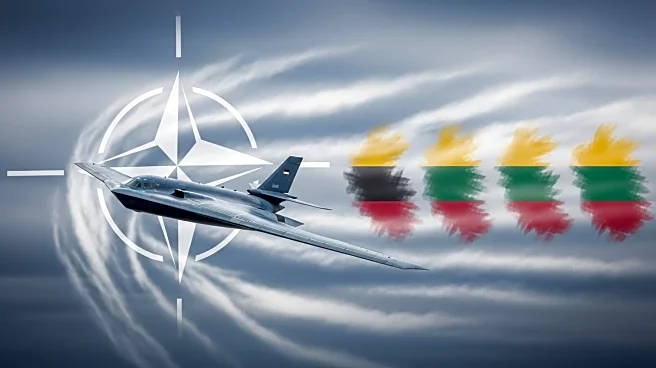What's Happening?
Russian bombers from the Baltic Fleet have conducted exercises in Kaliningrad, targeting training grounds near NATO allies. The drills involved Su-30SM2 fighters and Su-24M bombers practicing bombing runs and evasion tactics. Concurrently, Baltic states Estonia, Latvia, and Lithuania are preparing for potential Russian aggression, implementing contingency plans and mass evacuation procedures. These nations report ongoing hybrid warfare tactics from Russia, including cyberattacks and airspace violations. President Vladimir Putin announced the development of new nuclear weapons, indicating an arms race and heightened global tensions.
Why It's Important?
The military activities in Kaliningrad and the Baltic states' defensive measures highlight the escalating tensions between Russia and NATO. The exercises serve as a demonstration of Russia's military capabilities and strategic intentions, raising concerns about potential conflicts in the region. The Baltic states' preparations reflect their vulnerability and the importance of NATO's commitment to mutual defense under Article 5. Putin's announcement of new nuclear weapons development further exacerbates fears of an arms race, impacting global security dynamics and diplomatic relations.
Beyond the Headlines
The situation underscores the complex geopolitical landscape in Eastern Europe, where historical grievances and strategic interests collide. The Baltic states' proactive defense measures illustrate the broader implications of regional security and the necessity for international cooperation to prevent escalation. The arms race rhetoric from Russia may influence global nuclear policies and prompt discussions on arms control and disarmament.










